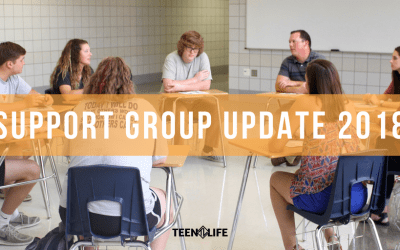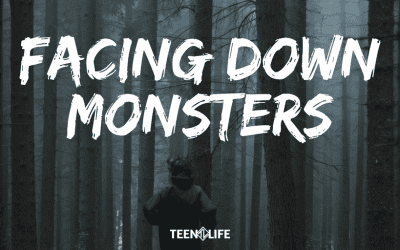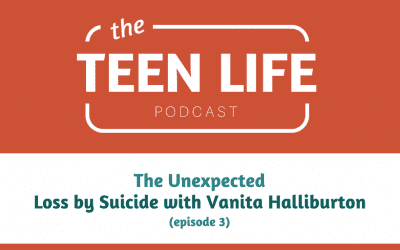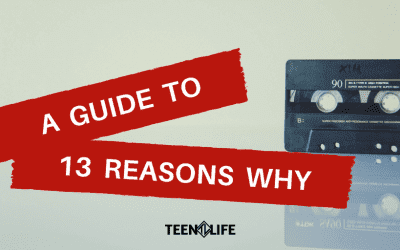No teen deserves to feel alone.
We connect every teenager with trusted adults and resources because no teen deserves to feel alone.
What makes a caring adult a trusted resource? When you complete our easy, online certification, you will leave with the skills and knowledge to connect with teens and help them walk through life’s challenges. You will be fully equipped to lead a Support Group!
OVER
Students helped since 2008
OVER
Trusted adults trained
Looking for resources for your school?
Want to lead support groups?
“One thing I learned from this group is that I always have someone to talk to.”
– Teen Life support group student

I can’t say enough about the benefit with partnering with Teen Life.
The past eight years, I have led or co-led at least one group every year, sometimes two. The curriculum is pertinent and helpful to get kids to talk and engage. Kids need a safe place to be encouraged and to gain skills in coping with school pressures and life stresses.
Heritage MS Counselor
Grapevine/Colleyville ISD
It has been a great blessing to walk beside these kids on their turf.
Equipping them with some tools to help break the generational cycles of self-esteem, relationship, and spiritual poverty, and to assist them in casting a vision on where they want to be and how they might get there.
Jacob
Decatur ISD, Support Groups Facilitator
You’ve got to check this out!
Teen Pregnancy with Charlotte Smiley
Charlotte experienced a teen pregnancy as a teen and as a parent of a pregnant teen. Charlotte walks us through the challenges of both sides of the story.
Support Group Update 2018
Summer is officially here, and I did not want to miss the opportunity to share the ways your support, donations, and encouragement have impacted the 1,204 students who participated in Teen Life Support Groups this school year. Each week, I get to see the impact these groups make. These teenagers are more than numbers, campuses and school districts to me. I get to sit in their circles, hear their stories, and talk about their futures. I get this perspective most weeks of the school year, but I know that most of you are not Teen Life Facilitators. You are in your own trenches – in your homes, classrooms, and churches. You are doing hard work, but you don’t always get to participate in the intentional conversations that a Teen Life Support Group can encourage.
Facing Down Monsters
“‘Stories don’t always have happy endings.’ This stopped him. Because they didn’t, did they? That’s one thing the monster had definitely taught him. Stories were wild, wild animals and went off in directions you couldn’t expect.” ~ A Monster Calls, Patrick Ness
A Monster Calls is a book and movie that is beautiful and devastating all at once. It is about a 13-year-old boy, Connor, with a mother who is battling cancer. This story is told from Connor’s perspective when he begins to have nightmares about a ‘monster’ visiting him and telling him parable-like stories that make him reconsider all he has been taught. This story, while fictional, paints a perfect picture of what happens when trusted adults cause a negative effect in a serious situation faced by a teen.
The Unexpected Loss by Suicide with Vanita Halliburton
Vanita Halliburton’s teenage son, Grant, took his life by suicide. Now as an expert on the subject, she gives warning signs and steps to help a teen in crisis.
A Guide to 13 Reasons Why
* Warning: Spoilers of 13 Reasons Why Season Two and discussion of graphic content ahead.
The popular, controversial Netflix series 13 Reasons Why returned two weeks ago with Season Two. It was as interesting, graphic, provocative and disturbing as the first season. I can see why teenagers identify with it and parents fear it. Last year, we received several questions and concerns around the first season of 13 Reasons Why. As an avid Neflix fan, I decided to watch the show to have a better idea of what teenagers were being exposed to and to help parents, teachers, and other helpers have positive conversation in the midst of a controversial series. After watching Season Two, I have a few thoughts, tips, and questions that I hope will help you have educated, positive, and relevant conversations with the teenagers in your life.
The Unexpected Impact of Drug Use with Amy Deprang & Ross Van Gorder
Amy Deprang and Ross Van Gorder talk about teen drug use, it’s effects, and how it impacted their family when as a teenager, Ross started using drugs.





